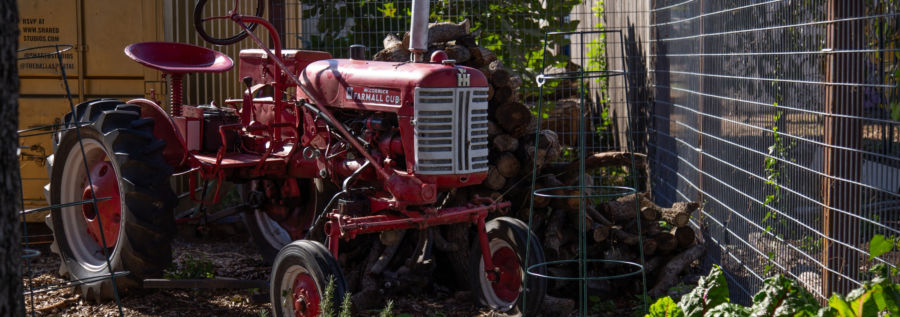Doris Young remembers when the Bonton area of inner-city Dallas was different—when the drug dealers and prostitutes were outside, and everyone else stayed indoors.
“Back then, we had everything—drugs, killings, street-walkers,” she said. “Any unlawful activity, you could see it in Bonton. But now, we have a community coming together.”
The catalyst has been Daron Babcock, a former business executive who found his faith and then a calling in the little post-World War I housing community known as Bonton. His focus is on rebuilding the institutions—faith, family, community—that make for strong, healthy homes and resilient residents.
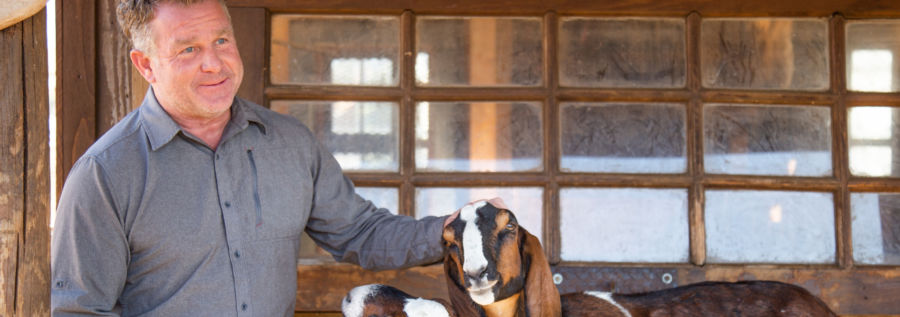 “We’re seeing lives changed and communities restored not through government programs or political fiat, but by the rebuilding of the institutions that matter,” said Kevin Roberts, Executive Director of the Texas Public Policy Foundation. “It happens when individuals take upon themselves the command of every faith to care for the poor and forgotten. I’m reminded that ‘compassion’ literally translated means ‘to suffer with.’ And that’s what Daron Babcock does every day.”
“We’re seeing lives changed and communities restored not through government programs or political fiat, but by the rebuilding of the institutions that matter,” said Kevin Roberts, Executive Director of the Texas Public Policy Foundation. “It happens when individuals take upon themselves the command of every faith to care for the poor and forgotten. I’m reminded that ‘compassion’ literally translated means ‘to suffer with.’ And that’s what Daron Babcock does every day.”
Babcock will be a featured speaker at TPPF’s Policy Orientation in January.
“I live just up the street,” Ms. Young explained. “Mr. Babcock moved in a couple of streets over. It’s a black neighborhood, and this white guy moves in? You know what they were saying—he’s either the police or he’s the police. Well, I went to meet him, and he invited me to go to church. We talked about my spirituality. We talked about his faith. And I knew it was real.”
Babcock began volunteering in the Bonton community in 2011; within a few years, he had moved into a disused and dilapidated home, founded an urban farm and expanded his farmer’s market to include a café, a coffee shop and, soon, a homebuilding project. He ministers to those society has largely abandoned—former prisoners, addicts, the poor and homeless. Bonton Farms now provides places to stay, jobs, training and support to help people bridge the gap from poverty and prison to productive society.
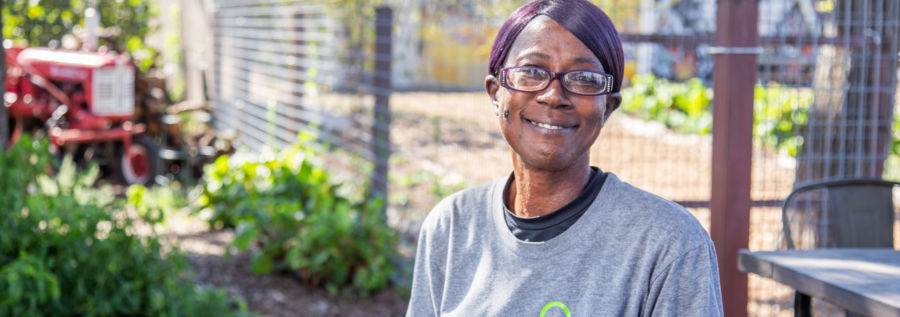 For Ms. Young, it began with a good meal, a rarity in a food desert like Bonton.
For Ms. Young, it began with a good meal, a rarity in a food desert like Bonton.
“The health issues in our community are big,” she said. “We’ve got sickly children, we’ve got diabetes, we’ve got high blood pressure. But this farm here has brought a chance to change eating habits. We can teach people you can eat right, and it tastes good, as well.”
Ms. Young works at the farm, doing “whatever is needed right now,” she said.
“I work with the goats, I collect the eggs, I plant things and I harvest things,” Ms. Young laughed. “I absolutely love it. It’s where I come to decompress.”
It’s also where she learned she can succeed in life.
“These guys are my motivators,” she said of the men and women she works with at Bonton Farms. “I can call them in the middle of the night if I’m having a problem. I have a support system I’ve never had before.”
That support is more than just spiritual and moral. Many Bonton residents, especially those who have been in prison, face major obstacles to their success.
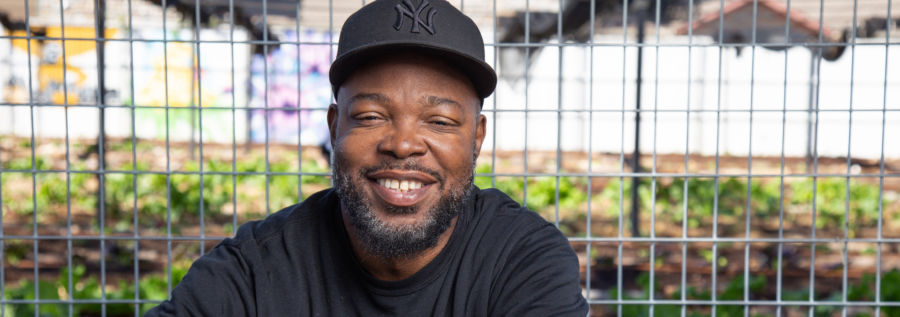 Willie Harris also grew up in Bonton. He served time in prison but found his way back to the community—and to Bonton Farms. His role these days is to encourage those who are where he once was. That includes talking to them, of course—but it also means driving them around.
Willie Harris also grew up in Bonton. He served time in prison but found his way back to the community—and to Bonton Farms. His role these days is to encourage those who are where he once was. That includes talking to them, of course—but it also means driving them around.
“They have to report to their parole officers, and on top of that they’ll have doctor appointments, dentist appointments, job interviews, things like that,” he said. “I try to help them out with that.”
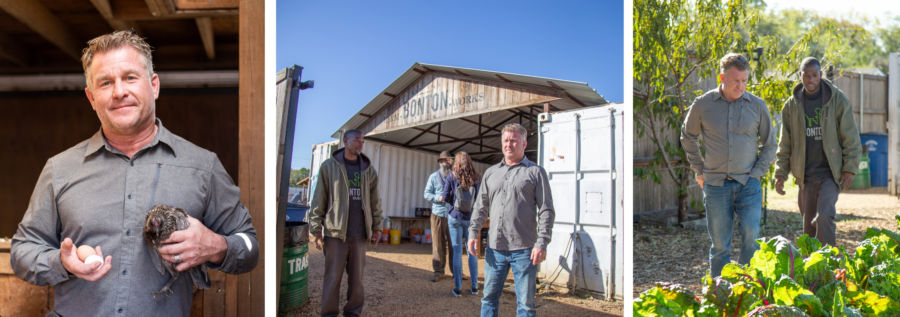 For Babcock, the reward is in the work itself.
For Babcock, the reward is in the work itself.
“I lost my wife at 32 to cancer,” he said. “I was an athlete in college; I could take physical pain so well, but not emotional pain. I turned to drugs and alcohol. But my friends and family wouldn’t let me go; I found my faith, and it drives everything I do.”
He came to Bonton to find a purpose, he said.
“By serving the least of these, God rescues us, and invites us in to help rescue others,” Babcock said. “I started working with former inmates, and those men saved my life.”
Babcock knew just about everything there was to know about business and finance, but he found he knew nothing about poverty, he said. But slowly, by trying and failing then trying again, he began to learn what works—and what doesn’t. What’s happening in Bonton isn’t happening because of government programs; in large part, it’s happening in spite of them
“So many people here are on [Social Security] Disability who don’t need to be,” he said. “We tell them they’re more than the $750 a month the government says they are worth.”
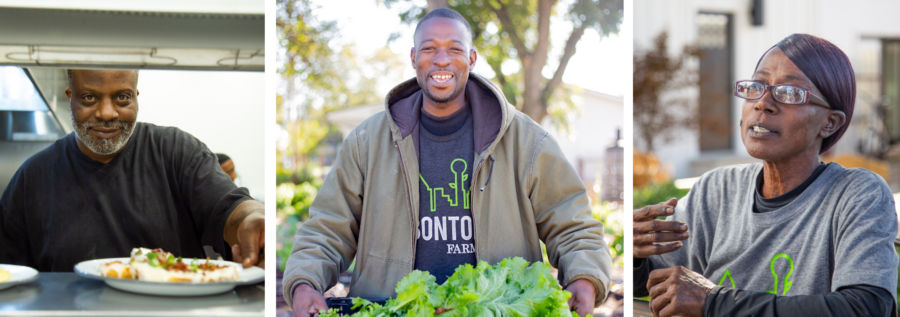 For former inmates, some of the biggest challenges to restoration are the challenges put in front of them by the criminal justice system itself. That makes Babcock’s work more difficult. He has structured his programs around addressing these challenges one-by-one, from learning good work habits to navigating transportation systems to anger management and people skills.
For former inmates, some of the biggest challenges to restoration are the challenges put in front of them by the criminal justice system itself. That makes Babcock’s work more difficult. He has structured his programs around addressing these challenges one-by-one, from learning good work habits to navigating transportation systems to anger management and people skills.
“It takes us 16 months to get someone job-ready,” he explained. “There are just so many encumbrances we have to overcome. They have to learn to handle conflict, to change their habits. You can’t rush this.”
But it’s working. That’s evident in the changed lives around him, and it’s evident in the community.
“Last year, Bonton had the lowest crime rate in South Dallas,” he noted. “Our city has a murder problem. But there’s no safer community to live in than Bonton. There’s something here that is working. Now, we just have to figure out how to give it away.”
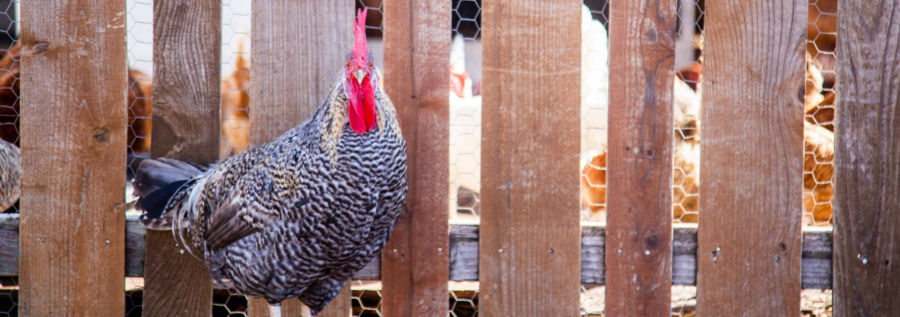
If there’s a perfect illustration for Bonton Farms, it’s the tiny, feisty hen named Minnie Pearl.
Minnie Pearl appeared on the farm one spring morning four years ago; Babcock thought that some of his workers had missed an egg.
“It takes 28 days for a chick to hatch,” Babcock said. “How did we miss that three times a day, which is how often we check for eggs, for four whole weeks?”
But she was a Bantam, a breed they didn’t raise in Bonton Farms. Their best guess, Babcock said, is that someone bought a child a cute little chick for Easter, and didn’t know what to do with it as it grew. And so one night, they tossed her over a fence at Bonton Farms.
Like everyone else who shows up at the place, she now has a home—and a job. She’s the ferocious mother hen (despite her small size) for all of the chicks the farm brings in.
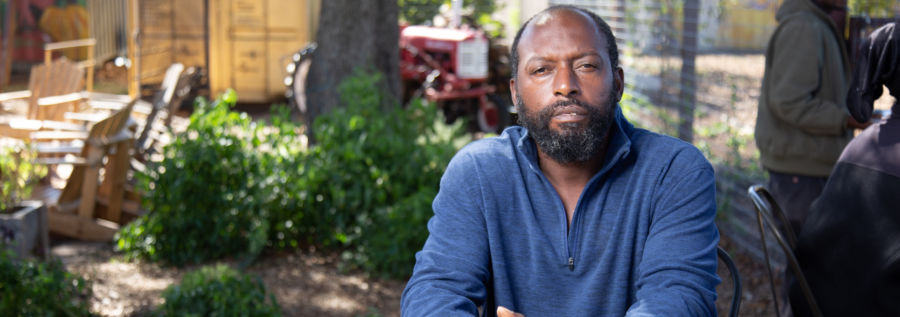 Matthew Nard arrived at Bonton Farms two months ago after years of homelessness and addiction.
Matthew Nard arrived at Bonton Farms two months ago after years of homelessness and addiction.
“I was under a bridge, over by the homeless shelter, using every day,” he said. “There was just a lot of violence. I needed help.”
The change has been dramatic, he said.
“I’m healthier, I’m eating better, I’m living better,” he said. “I don’t have to worry about people stealing my stuff when I’m gone. On the streets, when you leave your stuff, it’s anyone’s. I’m not waking up next to people using, fighting. I’m with people who encourage me.”
He’s even doing something he said he hasn’t done for years—thinking about the future.
“I want to get my own place,” he said. “I’m not that stable yet, but I want to get my own place, be to myself, to see what the Lord has for me next.”
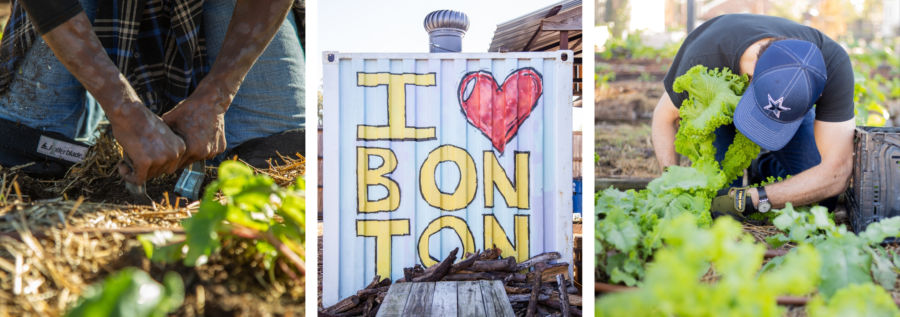 Harris, the former inmate who helps other Bonton folks with things like transportation, says hope is one of the first things that blooms at Bonton Farms.
Harris, the former inmate who helps other Bonton folks with things like transportation, says hope is one of the first things that blooms at Bonton Farms.
“This gives a lot of guys the opportunity to change,” he said. “If they want to do better, they can. If they want to be more than just a street guy, a drug dealer, they can. If they want their kids to watch them be something more, it’s possible. That’s what we show them.”
To learn more about Bonton Farms, click here:
